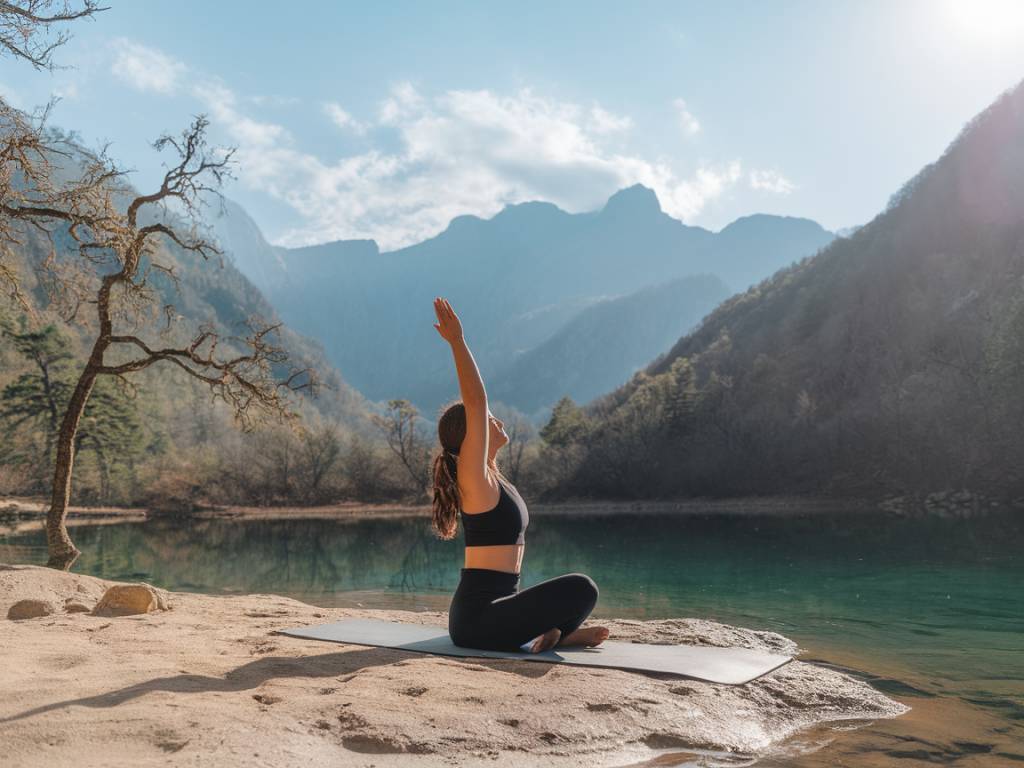The Link Between Mental Health and Everyday Physical Activity
Have you ever noticed how much better you feel after a brisk walk, a quick yoga session, or even just a morning stretch? That’s not a coincidence. The connection between mental health and everyday physical activity runs deeper than most of us realize. In today’s fast-paced world, where stress and anxiety have become almost unavoidable, understanding this connection can open up a world of benefits for your mind and body. Let’s dive in!
How Does Physical Activity Impact Mental Health?
It’s no secret that moving your body releases endorphins, the so-called “feel-good” hormones. But there’s more to the story than just a temporary mood boost. Physical activity helps reduce levels of stress hormones like cortisol, supports better sleep, and can even help alleviate symptoms of depression and anxiety. What’s amazing is that it doesn’t have to involve high-intensity workouts or hours at the gym to make a difference.
Think about this: when you take a walk in nature or dance around your living room to your favorite playlist, your heart rate elevates slightly, your muscles engage, and your brain kicks into a different gear. You’re not just moving your body; you’re moving your mind as well.
Small Steps, Big Impact
If the idea of regular exercise feels overwhelming, don’t worry—you’re not alone. For many women juggling work, family, and personal time, dedicating an hour to a workout can feel impossible. The good news? You don’t need a gym membership or fancy equipment to reap the mental health benefits of staying active.
- Take the stairs instead of the lift: A small change like this adds movement to your day and gets your blood flowing.
- Stretch while watching TV: Who says you have to choose between Netflix and movement? Multi-tasking can be your best friend.
- Short walks are your secret weapon: A 10-minute stroll outside can do wonders for clearing your mind and improving focus.
The key is consistency. These little movements add up over time, helping to create a routine that supports both your mental and physical health.
Stress Relief Through Movement
Have you ever felt a wave of frustration or sadness and instinctively wanted to do something—anything—to shake it off? That’s your body telling you it craves movement. Physical activities act as a natural outlet for releasing tension.
Everyday physical activities like gardening, cleaning the house, or even playing with your kids can double as stress relievers. They may not seem like “exercise” per se, but they get your body moving, distract your mind, and often leave you feeling more in control of your emotions. And let’s be real: few things are more satisfying than the joy of a clean, organized space after a weekend of decluttering!
The Magic of Fresh Air and Sunshine
Whenever possible, take your movement outdoors. Whether it’s a walk in the park, yoga in your garden, or even having a coffee while standing outside, the benefits of fresh air and natural sunlight are substantial. Exposure to sunlight increases serotonin production, a mood-boosting chemical, while the gentle activity supports mental clarity.
One favorite activity of mine? Morning walks with a podcast. Not only does walking get my legs moving, but focusing on an uplifting or informative podcast gives me a mental reset for the day. Try it—you might just find it becomes your new favorite ritual.
Physical Activity and Confidence
It’s incredible how even small physical achievements can boost your confidence and self-esteem. Do you remember how proud you felt the first time you mastered a new dance move or ran an extra block without feeling winded? Accomplishments like these remind us of our physical and mental resilience.
Building a sense of control over your body translates into your mental and emotional world too. Whether you’re tackling micro-challenges like taking an evening walk every day for a week or finally trying that YouTube yoga class, each win builds on the last.
When Time (or Energy) Feels Limited
We’ve all been there—tired, stretched too thin, and convinced there’s no room for even a shred of movement in the day. But physical activity doesn’t have to be all or nothing. It’s about finding what works for you.
- Desk stretches: If you’re stuck at your desk, a few simple stretches can go a long way in reducing stiffness and clearing your mind.
- Park farther away: Turn a mundane parking lot into an opportunity for extra steps.
- Set gentle reminders: Apps or alarms can nudge you to stand, stretch, or walk around at regular intervals throughout the day.
Some days, a short stretch or walk around the block is all you’ll manage—and that’s okay. Every bit counts, and it’s the intention to move that matters most.
A Mind-Body Connection Worth Nurturing
Life can often feel unpredictable, chaotic, or overwhelming. But here’s the thing: movement isn’t just about looking after your body; it’s a way to ground yourself, to reclaim a sense of stability and balance when your world feels anything but.
So whether it’s a full workout, a quick stretch, or a relaxing stroll—each step you take is a step toward supporting your mental health, one movement at a time. Now, what will you do today to get moving?
